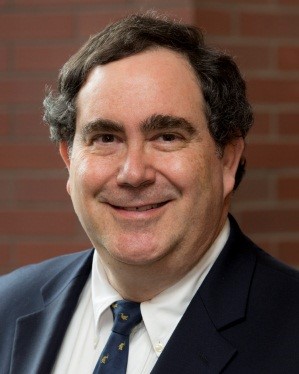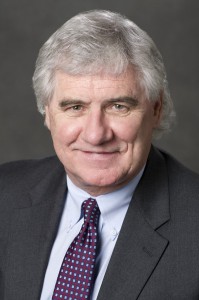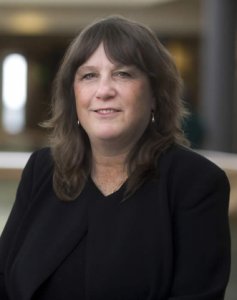Contributor: Liz Stiverson
Work and Life is a two-hour radio program hosted by Stew Friedman, director of the Wharton Work/Life Integration Project, on Sirius XM’s Channel 111, Business Radio Powered by The Wharton School. Every Tuesday from 7 to 9 PM EST, Stew speaks with everyday people and the world’s leading experts about creating harmony among work, home, community and the private self (mind, body and spirit).
In the second hour of Work and Life on February 25, Stew Friedman spoke with Jerry Jacobs, Professor of Sociology at the University of Pennsylvania and founding President of the Work and Family Researchers Network. His research focuses on aspects of employment, including authority, earnings, working conditions, part-time employment, and work/family conflict, especially for women in the workplace. Friedman and Jacobs discussed differences in the challenges people face in work/life integration across countries and demographics, and how government should contribute to improving work/life conditions in America.
Stew Friedman: Tell us a bit about the Work and Family Researchers Network. What was the inspiration?
Jerry Jacobs:  The Network is an interdisciplinary, international scholarly association. When it was created, a small number of us signed up and said we would be the founding members, but we had no idea how big the audience was going to be. I wanted to make sure we had at least two or three hundred people at our first meeting, but the first meeting completely blew past our expectations. We had 800 scholars and researchers from 33 different countries join us in New York in June 2012. It was terrific – I had an email conversation with a British scholar, and she brought 11 people she knew from seven countries. It wasn’t a matter of me working day and night to generate interest – there was such a latent demand. It has been wonderful to see how much people have been learning from one another through the Network. Work/family issues are obviously different in Scandinavia than they are in the US; there are also differences by discipline, by approach, by personal versus business versus public policy issues.
The Network is an interdisciplinary, international scholarly association. When it was created, a small number of us signed up and said we would be the founding members, but we had no idea how big the audience was going to be. I wanted to make sure we had at least two or three hundred people at our first meeting, but the first meeting completely blew past our expectations. We had 800 scholars and researchers from 33 different countries join us in New York in June 2012. It was terrific – I had an email conversation with a British scholar, and she brought 11 people she knew from seven countries. It wasn’t a matter of me working day and night to generate interest – there was such a latent demand. It has been wonderful to see how much people have been learning from one another through the Network. Work/family issues are obviously different in Scandinavia than they are in the US; there are also differences by discipline, by approach, by personal versus business versus public policy issues.
SF: What are some of the important national differences you’ve observed from your perch as Executive Officer of the Network?
JJ: Social policies are very different across countries. The United States has a smaller welfare state than many other countries do; you can tell because the words “welfare state” don’t sound good in many people’s ears. A welfare state is a whole package of policies – not just about work and family, but about income security, job protections, early childhood education, provisions for the elderly. The US government is less involved in those things. It’s just different. Many people in the work/family area advocate stronger government involvement, but I think we have to be realistic and try to work at the margins with the traditions we have in the US to build in areas that are important. We’re not going to become Japan or Sweden or France. We have to be a better version of the United States as opposed to trying to copy what somebody else does.
SF: What does it mean for America to be a better version of itself?
JJ: I think there are a lot of little things we can do, and I also think there are a lot of things that are happening in the work/family area already that are not always recognized as work/family policies. In New York City, for example, there’s a lot of discussion of early childhood education. That’s not on the list of work/family sessions we’re going to have at the next Work and Family Researchers Network conference, but in fact, early childhood education has a big impact on work/family. It enables women to go back to work earlier, to have more time to spend with their really young children, to level the playing field between parents who have more resources and parents who have fewer resources. So whether we’re talking about after-school programs, which were a major addition to the US landscape about a decade ago, or early childhood education, or various things happening in elder care, simple things would make a lot of difference. In France there’s something called l’école maternelle, which is early childhood education. It’s partly to improve the educational opportunities for children, but it’s also partly intended to be a policy that facilitates mothers going back to work. The connections with work/family are there, but when you hear, for example, Mayor de Blasio talking about these issues in New York City, he’s really been focused on the poverty and educational aspects and the question of who’s going to pay for it; it’s not labelled as a work and family policy.
SF: You’ve made a career in part investigating how these issues play out in different parts of the labor market. What’s been most interesting to you about the diversity of interests across different labor markets as people in those markets struggle with the question of how to integrate different parts of their lives?
JJ: So many people in this area focus on the issue of overwork – people having trouble getting everything done that they want to do, having long and demanding hours at the job, but also a lot of family responsibilities at home. But there’s another part of this story that doesn’t always get as much attention: underwork. A lot of people need more income than they have. Where a lot of affluent couples find themselves with both partners’ hours and work week very long, scrambling to keep everything together, a lot of people with less education, fewer job opportunities, and lower salaries and wages are looking for more work than they’re able to get. The work/family issue is not only about having enough time – it’s also about having enough financial and flexibility resources. For example, a lot of people in blue collar jobs can’t just take off the afternoon to go to a parent-teacher meeting. Part of that’s cultural, and part of that is technical aspects of their work. The highest priorities for many low-wage workers may be more job security and more economic opportunities. A lot of low-wage workers work in the evenings, at nights and on weekends – it’s not only a matter of how many hours, but which hours. Working conflicting shifts is a very difficult challenge for families. I pass an overnight daycare center on my way to work every day, which is there to provide some childcare for parents who work in the evenings and overnight. Helping children with their homework has to happen in the evenings, getting the kids off to school has to happen in the mornings; that’s not necessarily the first thing that comes to people’s minds when we talk about work/family.
SF: What can we predict or expect for roles of men and women in society over the next couple of decades in terms of who plays what roles in the domestic world, the business world, and the social world?
JJ: One trend that seems pretty clear is that jobs are not as stable as they used to be. People have to be much more flexible over the course of their lives – they’re not going to have one job and inch their way up the corporate ladder over a 20 or 30 year period. There are people who are in those situations, but it’s just not the norm anymore. Jobs are dynamic, flexible, and uncertain. One of the things this underscores is the importance of a social safety net provided by the government. The notion of a “safety net” was Ronald Reagan’s way of describing social assistance for people; he wanted to emphasize that it was temporary and not a right or an entitlement, but there if you fall. As we move into an era where there is so much more instability in people’s lives, the metaphor of a safety net makes more and more sense.
I was just reading a book by Ruth Milkman and Eileen Applebaum, Unfinished Business: Paid Family Leave in California and the Future of U.S. Work/family Policy, which is an evaluation of California’s paid family leave policy. The United States’ Family and Medical Leave Act provides 12 weeks of unpaid leave, but a lot of people are unable to take advantage of it because they can’t afford it. California has a more limited paid leave policy that supplements the national unpaid leave policy, with income replacement at 55% of the employee’s salary. It’s paid for by workers who contribute to a pot of basically insurance money. It’s not something employers wanted, but they found it very easy to adjust to, it was very popular among workers and made a really big difference in people’s lives. As we see evidence come in that these kinds of things are workable, practical, and don’t have a negative economic impact, we could build on them. There are two other states now moving in that direction on this issue, Rhode Island and New Jersey. That’s the kind of way in which things spread in our country – we try something in one city, and if it works, another city, and then a state, and if all goes well, we make some progress on a national scale. With any luck, we’ll have broader diffusion of this kind of policy.
Jerry Jacobs is the author of several books on work/family issues for demographics across America, including The Changing Face of Medicine: Women Doctors and the Evolution of Health Care Across America and Putting Poor People to Work: How the Work-First Idea Eroded College Access for the Poor. Visit his website for more information.
Join Work and Life on March 11 at 7 PM on Sirius XM Channel 111 for conversations with Alyssa Friede Westring and Ashley Milne-Tyte about how young professionals manage multiple roles in work and life, and how women navigate the workplace for success. Visit Work and Life for a full schedule of future guests.
About the Author
 Liz Stiverson is a 2014 MBA candidate at The Wharton School.
Liz Stiverson is a 2014 MBA candidate at The Wharton School.
 On
On  Ellen Kossek: I was a PhD student at Yale. I had been married about three years, and right in the busiest time of my fourth year of school, I was pregnant and about to have my first child. If I had taken any time off, I would have been stigmatized and I would have lost my fellowship, so I stuck it out. I think a lot of our choices as leaders stem from what happens in our own lives. I became passionate about wanting to make organizational changes to help others. I focused on this in my dissertation, and I never looked back.
Ellen Kossek: I was a PhD student at Yale. I had been married about three years, and right in the busiest time of my fourth year of school, I was pregnant and about to have my first child. If I had taken any time off, I would have been stigmatized and I would have lost my fellowship, so I stuck it out. I think a lot of our choices as leaders stem from what happens in our own lives. I became passionate about wanting to make organizational changes to help others. I focused on this in my dissertation, and I never looked back. Alice Liu is a senior studying Management at The Wharton School and English (Creative Writing) at the College of Arts & Sciences.
Alice Liu is a senior studying Management at The Wharton School and English (Creative Writing) at the College of Arts & Sciences.